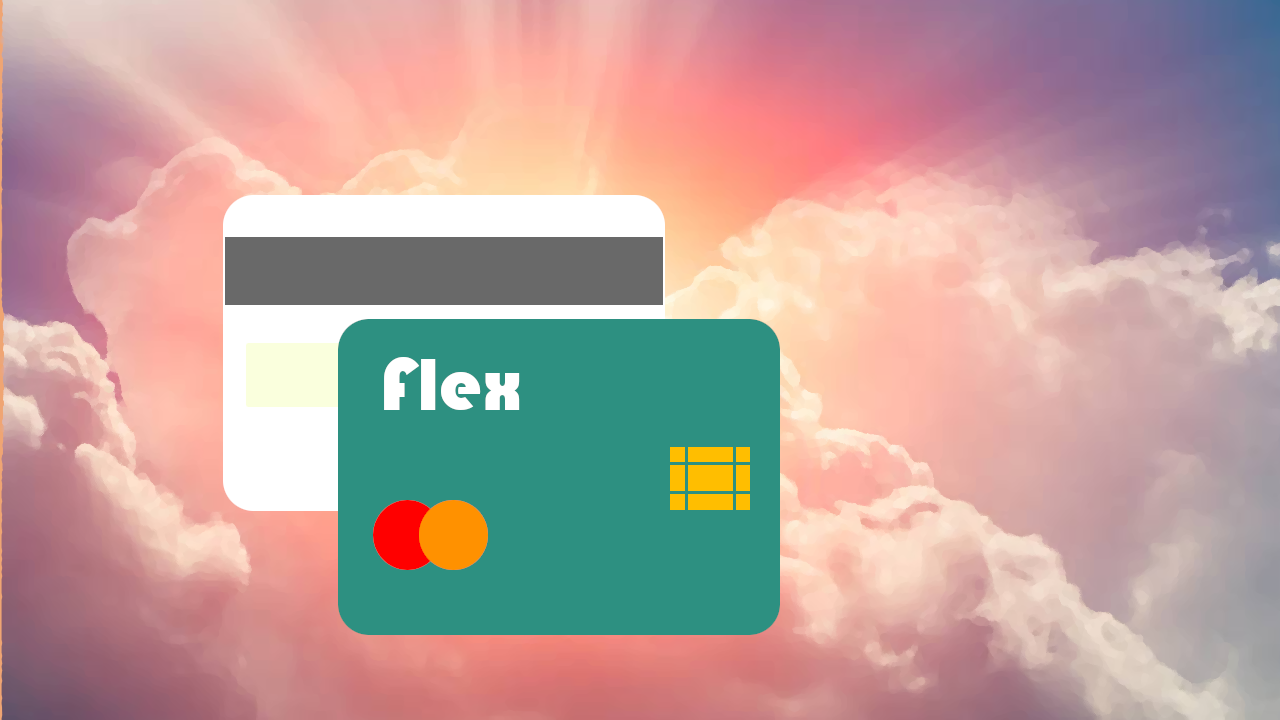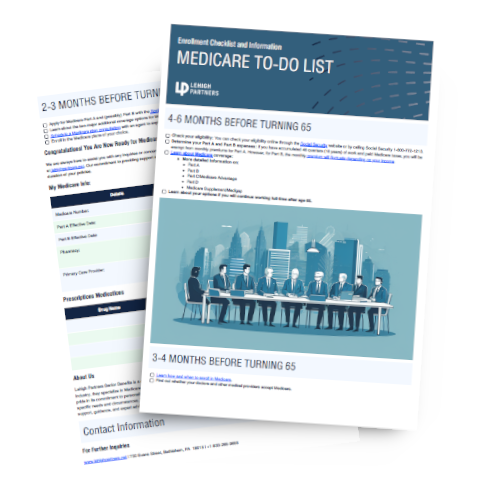A Medicare Flex Card is a prepaid debit card offered by some Medicare Advantage plans to help seniors pay for eligible healthcare expenses. If you're wondering what the Medicare Flex Card is, it's often called an OTC card and can be used for approved over-the-counter items like medications, first aid supplies, and sometimes even dental, vision, or hearing services. While Flex Cards sound appealing, they are not part of Original Medicare, and benefits vary widely by plan.

Medicare Flex Card overview and benefits explained.
Medicare Flex Card: What You Need to Know
A Medicare Flex Card is a type of prepaid debit card offered by certain private Medicare Advantage plans, not by the U.S. government. Sometimes also called an OTC Card or even a Medicare cash card, this benefit is designed to help seniors pay for specific healthcare expenses — such as over-the-counter (OTC) medications, healthy groceries, dental copays, and even hearing or vision services.
It’s important to know: the Medicare Flex Card is completely separate from your traditional Medicare card or any insurance card you might have from a Medicare Advantage or Medigap plan.
In this article, we’ll break down exactly how prepaid debit cards work in Medicare Advantage plans, what expenses they typically cover, how to apply, and what to watch out for — especially when it comes to common Flex Card scams. Whether you’re already enrolled in a Medicare Advantage plan or just exploring your options, our goal is to give you clear, trustworthy information to help you make the best decisions for your healthcare.
What Is a Medicare Flex Card for Seniors?
Simply put, a Medicare Flex Card is a prepaid benefits card designed to help cover out-of-pocket health expenses. Think of it like a gift card — pre-loaded with a set amount — that can be used for eligible healthcare purchases.
Many seniors find it helpful for everyday expenses, such as:
- Prescription copays
- OTC items like vitamins, cold medicine, and bandages
- Dental visits or dentures
- Vision services, including new glasses
- Hearing exams or hearing aids
For example, instead of juggling multiple bills for dental and vision care, a senior might use their Flex Card like a debit card at their provider’s office — making payments quick and simple.
It’s also worth noting that while the Flex Card can make healthcare more affordable, the amount available varies depending on the specific Medicare Advantage plan you choose. Some plans offer a monthly allowance, while others provide a yearly lump sum.
Important: Medicare Flex Cards are only available through certain Medicare Advantage plans — they are not included with Medicare Supplement (Medigap) plans.
If you're considering a Medicare Supplement instead, take our quick quiz to find out which Supplement plan might be the best fit for your needs!
What Is a Medicare Over-the-Counter (OTC) Benefits Card?
You might also hear people refer to their Flex Card as an OTC Card — but technically, an OTC card is a version of the Flex Card that focuses specifically on over-the-counter items.
With an OTC card, you might use your prepaid balance at pharmacies, grocery stores, or online retailers to buy things like:
- Pain relievers
- Cold and allergy medications
- First aid supplies
- Diabetic test strips
- Vitamins and supplements
Imagine walking into your local pharmacy, grabbing your necessary items, and paying with a tap of your Flex or OTC card — no out-of-pocket expense at checkout. It’s that easy (when the retailer participates in the program).
What a Medicare Flex Card Covers
While coverage can vary, here are common expenses that Medicare Flex Cards often help pay for:
- Prescription drug copayments or coinsurance
- Over-the-counter medications and health products
- Dental services, dentures, and hearing aids
- Vision care and glasses
- Fitness programs like SilverSneakers
- Transportation to medical appointments
- Certain groceries aimed at improving health (through specific healthy food programs)
⚡ Important:
Original Medicare (Parts A and B) does not provide Flex Cards.
Flex Cards are only available through private Medicare Advantage plans — and not all plans offer them.
Also, remember: some cards have expiration dates on the funds or restrictions on what you can buy. Always check your specific plan’s benefits guide.
Who Qualifies for a Medicare Flex Card?
You must meet three main requirements to qualify for a Flex Card:
- Be enrolled in an eligible Medicare Advantage plan that offers the benefit.
- Live in the service area where that plan is available.
- Apply during your Initial Enrollment Period or during Medicare’s Annual Enrollment Period.
It’s important to emphasize:
Flex Cards are not issued by Original Medicare or any government agency.
They come exclusively from private insurers offering certain Medicare Advantage plans.
For example, someone retiring at 65 might select a Medicare Advantage plan that includes an OTC Card benefit. They would then receive a Flex Card in the mail after their plan starts, preloaded with the annual or monthly balance according to the plan rules.
A Word of Caution About Medicare Flex Card Scams
Unfortunately, because Flex Cards sound so appealing, some scams target seniors with false promises of "free Medicare Flex Cards" or "extra cash from Medicare."
Be cautious if someone:
- Promises you a Flex Card just for providing your Medicare ID
- Asks for personal banking information to "send your Flex funds"
- Says all Medicare beneficiaries automatically qualify for $2,800 or more
These are red flags.
Only legitimate Medicare Advantage plans — after you enroll — can provide a Flex Card.
Final Thoughts: Choosing the Right Medicare Plan for You
A Medicare Flex Card or OTC Card can be a helpful tool — but it’s just one piece of your healthcare puzzle.
The right Medicare coverage should be based on your total healthcare needs, not just a prepaid card benefit.
If you want expert help comparing Medicare Advantage and Medicare Supplement (Medigap) plans, schedule a free consultation with Lehigh Partners.
We’ll help you review your options, avoid scams, and feel confident in your Medicare choices.
Not sure whether Medicare Advantage or a Medicare Supplement plan is right for you? See the key differences here.
Note: Certain Medicare Advantage plans provide flex cards to members quarterly or annually. These cards cover health expenses like over-the-counter medicine, dental copays, and other costs. Some plans may also include a grocery allowance for healthful food. However, it's important to remember that these flex cards are not associated with original Medicare.
How to Get a Medicare Flex Card
Getting a Medicare Flex Card is simple when you know the right steps. Here's what you need to do:
-
Check if You’re Eligible
First, you must be enrolled in a Medicare Advantage plan — Flex Cards are not available through Original Medicare.
You also need to live in an area where a plan that offers a Flex Card is available. -
Compare Plans That Offer Flex Cards
Since Flex Cards come from private insurance companies (not the government), you’ll need to shop around.
You can use a Medicare Plan Finder tool — like the one we offer through Sunfire — or work directly with one of our licensed agents to compare your options.
We’ll help you find plans that not only offer a Flex Card but also meet your overall healthcare needs. -
Enroll During the Right Time
You can sign up for a Medicare Advantage plan with Flex Card benefits during:- Your Initial Enrollment Period (when you first qualify for Medicare)
- A Special Enrollment Period (if you qualify)
- Medicare’s Annual Enrollment Period (October 15 – December 7 each year)
-
Receive and Activate Your Flex Card
After you enroll, your prepaid debit card will be mailed to you.
Depending on your plan, the card might arrive pre-loaded with a set amount of money — or you may need to activate it first.
You can then use your Flex Card for eligible healthcare expenses like copays, deductibles, healthy groceries, and OTC medications.
Important Things to Know About Medicare Flex Cards
- Not all Medicare Advantage plans offer Flex Cards. It's important to double-check before you enroll.
- Covered expenses can vary. Some cards cover OTC products and fitness programs, while others focus on dental, vision, or transportation.
- Spending limits may apply. Some plans offer a monthly allowance; others provide a lump sum for the year.
- Always read the fine print. Check with your plan administrator or card provider to understand exactly how your Flex Card works.
Flex Cards can be a helpful benefit, but they are just one part of your overall Medicare plan.
Working with a trusted Medicare advisor ensures you pick a plan that fits your total healthcare needs — not just the extras.

Make the Smart Medicare Choice — With Real Help
Don’t leave your coverage — or your peace of mind — to chance.
Talk with a trusted Medicare advisor and find the right plan with real confidence.
Factors to Consider When Choosing Between Original Medicare and Medicare Advantage
While the Medicare Flex Card can be a nice bonus, it’s important to remember that it’s only one piece of the bigger Medicare puzzle.
When comparing Original Medicare to Medicare Advantage, focus first on the basics:
- How does the plan cover your regular medical care, like doctor visits, lab tests, and hospital stays?
- What about your prescription medications — are they covered affordably?
- Does the plan’s provider network include your preferred doctors, specialists, and hospitals?
Choosing a Medicare plan isn't just about getting a prepaid card.
It’s about making sure you have the coverage you need for your health, peace of mind, and budget — today and in the future.
A Flex Card may be a helpful extra, but your core medical benefits should always come first when deciding which Medicare path is right for you.
If you're feeling unsure about which Medicare option fits you best, you're not alone — and you don't have to figure it out by yourself.
At Lehigh Partners, we specialize in helping you understand your real choices, not just the flashy offers you see online.
Schedule a free, no-pressure consultation and get the guidance you deserve to choose a Medicare plan with confidence.
Medicare Flex Card, OTC Benefits, and Cash Card Explained: FAQs for Seniors
A Medicare Flex Card is a prepaid debit card offered by certain private Medicare Advantage plans. It helps seniors pay for eligible healthcare expenses like dental care, vision services, hearing aids, and sometimes over-the-counter (OTC) medications. The Flex Card is not issued by the government or Original Medicare. Each plan sets its own spending limits, covered items, and rules for using the card.
No, Original Medicare (Parts A and B) does not offer an OTC card, Flex Card, or cash card benefit. These cards are only available through select private Medicare Advantage plans. If a plan offers this benefit, it may help pay for OTC items, healthy groceries, medical copays, or even fitness memberships.
With a Medicare Flex Card or OTC Card, eligible purchases may include over-the-counter medications, first aid supplies, dental services, hearing exams, vision care, medical equipment, and transportation to medical appointments. Covered items vary by plan, so it's important to review your specific plan's benefits guide or speak with a licensed agent.
Ready to Get Clear, Honest Medicare Help?
If you've made it this far, you're serious about choosing the right Medicare coverage — and we're serious about helping you.
Whether you're considering Medicare Advantage, Medicare Supplement, or just want real answers about Flex Cards, we're here to guide you — with no pressure, no gimmicks, and no confusion.
Let's find the best fit for your needs together.

